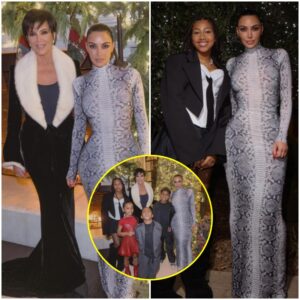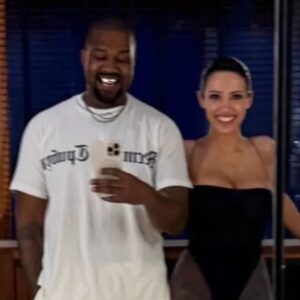Diddy was a ‘walking nightmare’ to work with at the beginning of his career as a young music executive and often abused his staff, according to former employees speaking exclusively with Daily Mail for its new podcast, The Trial of Diddy.
Pam Lewis-Rudden, who worked for Diddy as his assistant at Uptown Records in the early 1990s, said no one was safe from his infamous outbursts and their regularity caused her to leave the company.
Her comments – and those of a former LAPD detective and one of the rapper’s musical proteges – become public today in the first episode of The Trial of Diddy.

+5
View gallery
Diddy (pictured in 1992) landed an internship at Uptown Record in 1990 and quickly made his way up the ladder to become talent director

+5
View gallery
The Trial of Diddy: The No.1 True Crime podcast is back, covering all of the most shocking details from the Diddy case. Listen now wherever you get your podcasts
‘He called me b***h one time too many times,’ she said.
‘And it might not have been me, you know, just that word, and using it in addressing any and everybody in front of other people as well.
‘It wasn’t like you were in a room and he was saying it to you one-on-one. It was like in front of the whole office and any of the artists.
‘And it was just one time too many and then a friend of mine was working at, or she heard about, a job opening and, I was like, I’m out of here.’
At that point, Uptown had some of the brightest talents in America including Mary J. Blige, Jodeci, Christopher Williams, and Father MC.

+5
View gallery
Pam Lewis-Rudden, who worked for Diddy as his assistant at Uptown Records in the early 1990s, said no one was safe from his infamous outbursts and their regularity
Lewis-Rudden said Diddy butted heads with just about everyone, including Uptown’s chief executive Andre Harrell, who famously fired Diddy in 1993.
Harrell years later explained there was no malice in his firing of Diddy, he just knew it was time for him to run his own show.
‘Puff wouldn’t really listen to anyone but me, so my full-time job became managing Puff… I didn’t do it to hurt him, but I knew that it was time to let him grow,’ he told the Wall Street Journal.
‘The final straw for me was when MCA wanted me to not put out the Biggie Smalls album because they didn’t like the subject matter and they wanted me to tell him he’s gotta change his tone.

+5
View gallery
Diddy butted heads with just about everyone, including Uptown’s chief executive Andre Harrell, who famously fired Diddy in 1993 (pictured together)

+5
View gallery
Diddy and Harrell with others at Justin’s Opening on September 30, 1997 in New York City
‘And I thought it wasn’t up to me to tell a generation what they could and could not do artistically.
‘So I knew it wasn’t going to work (because Diddy had the same style). I told him, I’m really letting you go so you can go get rich.’
Get rich he did, as his Bad Boy Records soon signed a massive deal, and became one of the most successful labels of the 1990s and 2000s.
‘I was very passionate, and I didn’t understand protocol or workplace politics,’ Diddy later told Oprah Winfrey about being fired from Uptown.
‘So I got fired because there can’t be two kings in one castle. I wasn’t trying to be disrespectful to Andre, but I was fighting so hard. He wanted to be more diplomatic and to make sure everybody felt involved.’
News
festive treat Kendall Jenner strips off to a sequined corset and tights in sultry Christmas snaps
KENDALL Jenner has turned heads in eye-popping lingerie and heels. The Kardashians star, 29, looked stunning in the striking pictures as she…
FAMILY TIME Kim Kardashian looks stunning in figure-hugging dress as she shares new family Christmas snaps with kids and mom Kris
KIM Kardashian looked absolutely stunning in a figure-hugging dress as she shared new Christmas snaps. The Disney+ star celebrated the…
NICE TO SEE YOU Bianca Censori flashes her B/U/M in see-through tights as she smiles next to husband Kanye in glam New Year snap
BIANCA Censori has ended 2024 after a year of barely there outfits by stepping out in yet another revealing ensemble….
Timothee Chalamet’s sister Pauline shares nude baby bump pic after quietly welcoming first child
Timothee Chalamet’s older sister Pauline Chalamet surprised fans with a breathtaking reveal nearly three months after quietly welcoming her first child in September. …
Justin Bieber gushes over wife Hailey in sweet New Year’s Day tribute
Justin Bieber dedicated a sweet tribute to his wife Hailey Bieber in his New Year’s Day post. On Wednesday, the 30-year-old singer shared…
Fans are convinced Kylie Jenner is pregnant because of subtle detail in her latest video
Speculation that Kylie Jenner might be pregnant with her third child has gone into overdrive as some fans have claimed that the…
End of content
No more pages to load













Leave a Reply